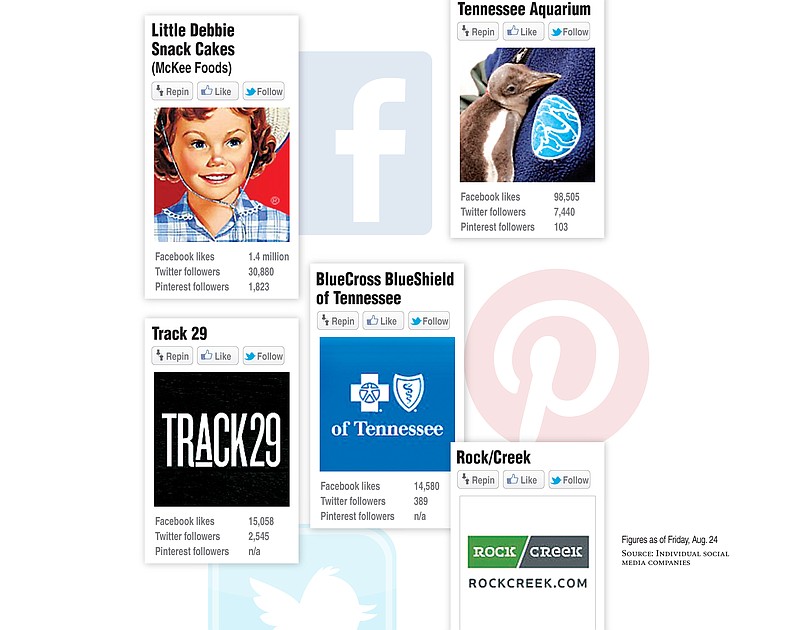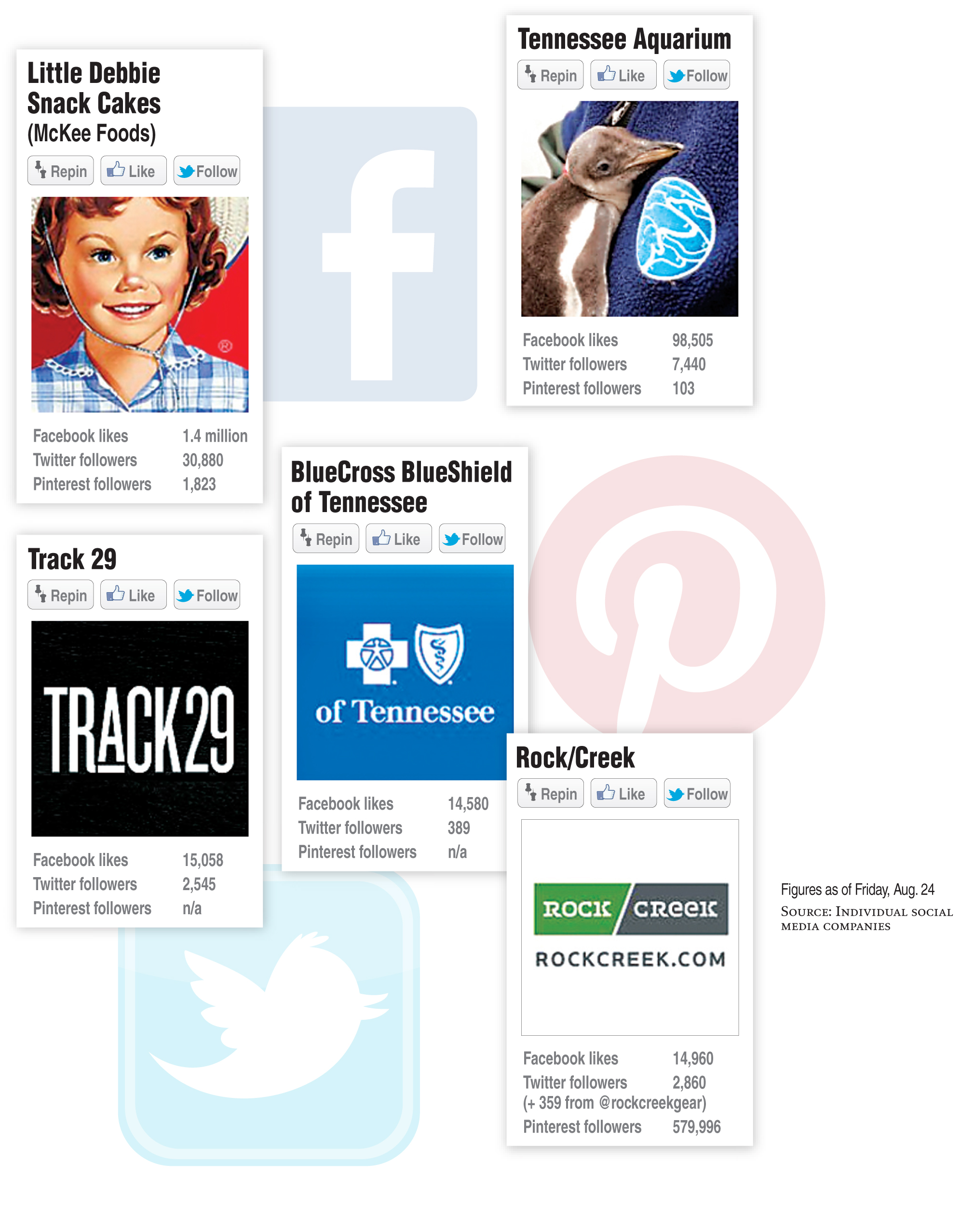In a high school made up of Chattanooga businesses, Little Debbie would be prom queen.
Track 29 would be the dreamy guitarist. BlueCross BlueShield could be the top student helping everyone with homework. And Krystal might be the overweight kid everyone can't help but love.
If Facebook, Twitter and other social media websites are any indication, all those companies would be extremely well-liked.
But their popularity hasn't come easy.
"The huge thing is learning how to be a person instead of a brand," said Erin Rankin, social media coordinator for The Johnson Group, which helped Krystal draw more than 140,000 "Likes" on Facebook. "Just about everyone should be on there. It's really a matter of finding which platform makes the most sense."
A variety of local businesses are doing well in Chattanooga's popularity contest. BlueCross BlueShield of Tennessee has more than 14,000 Facebook likes, Rock/Creek has drawn more than a half million Pinterest followers, but McKee Food's top brand Little Debbie blows most other local businesses out of the water with more than 1.4 million Facebook followers.
Several social media directors at the city's most popular businesses, whether business-to-consumer or business-to-business, use online platforms to become part of the conversation already happening about their brands.
"You're defined by what people say you are nowadays," said Casey Knox, social media director at local marketing firm Area 203. "You have the opportunity to help create that narrative and position yourself in a certain way."
That conversation isn't always positive. If a BlueCross member felt slighted by the insurer, for example, they may make an angry Facebook post about the issue. By having a presence on Facebook, the company is able to quickly hear and address the complaint.
"We don't try to keep anything from getting out there. These are real opportunities for us to demonstrate our values to our individual members, but also do it in a way that's public," said Aaron Collie, BlueCross's social media communications consultant. "We can turn a negative post into a positive post."
BlueCross, like several other local companies, uses social media to educate its audience not just on its business, but on topics relevant to their field. The Tennessee Aquarium, for instance, promotes its exhibits but also shares interesting stories on wildlife, Chattanooga and other topics relevant to its mission.
But social media platforms shine brightest for consumer-focused businesses trying to promote a brand. By attracting followers, businesses cultivate a potential customer base actively seeking information on the brands. Online campaigns can keep products at the top of customers' minds, nurture direct, personal relationships and open two-way conversations to find out what customers want.
McKee Foods has been particularly successful cultivating those followers over the past few years. In 2010, the company gained national recognition for its "Million Smile Mission" where it invited customers to share their Little Debbie memories on its page and attracted more than 1 million likes.
"We saw there was a good return," company spokesman Mike Gloekler said. "We were crossing gender gaps and age gaps. You're getting someone in California engaged as quickly as someone from Boston."
Even when a campaign is a clear success, attaching an actual return on investment number to it can be difficult. Unless a company is specifically trying to drive online sales, tracking the influence of online engagement is no easier than tracking the success of traditional advertising.
But a strong social presence often attracts unexpected opportunities. A company can discover an unintended use for its product. Employee pages can improve communication. Sometimes new business relationships can develop.
The Tennessee Aquarium, for example, was recently contacted by National Geographic, which wanted to use some of the aquarium's video footage.
"Sometimes social media can open doors you didn't know were there," aquarium spokesman Thom Benson said.
The platform is only going to increase in importance, experts contend. But taking advantage of that opportunity is easier said than done. The shape of social media is constantly changing. The space once dominated by Facebook has made room for the now-giant Twitter, the up-and-coming Pinterest and several smaller but influential sites such as FourSquare and Linkedin.
Facebook began trading publicly in May at $38 per share following one of the most anticipated stock offerings in history. Facebook's stock opened on May 18 above $42 a share but has since dropped to less than half its initial public offering price.
But with more than 900 million users around the globe, Facebook should do just fine despite its disappointing start, Knox said.
"If they have huge long-term goals and aspirations, they may have to leverage the public," she said. "You can't stay private forever."
Regardless of Facebook's future, Rankin said social media platforms are here to stay, and the companies that learn early how to use them well will benefit in the long run.
"The same thing happened when people started having websites," she said. "It's an opportunity."

